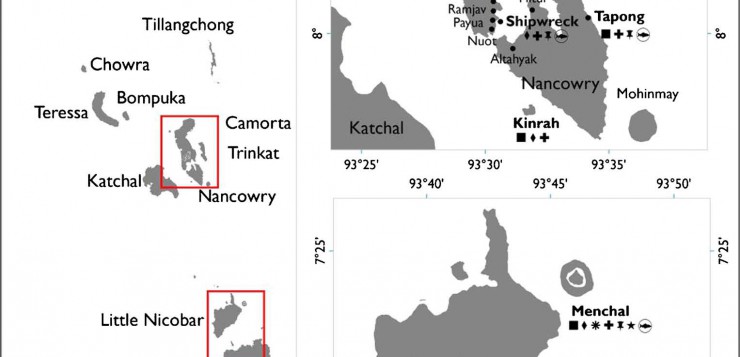Patankar, Vardhan; D’Souza, Elrika; Alcoverro, Teresa; Arthur, Rohan. Human Ecology : DOI 10.1007/s10745-015-9781-x (2015) DIGITAL.CSIC
To sustainably manage naturally scarce resources, island communities often evolve complex mechanisms including customary laws, belief systems, and reciprocity arrangements among others, to prevent overharvest. Their effectiveness depends largely on the extent to which resource users comply with the rules. We examined patterns of compliance with traditional marine management in the Nicobar Archipelago, India, before, and six years after, the 2004 tsunami. We used interview-based surveys to document marine harvest regulations, and changes in compliance patterns. Our results indicate that pre-tsunami, complex harvest rules existed, including spatio-temporal closures, gear restrictions and species bans; many reefs were subject to multiple, overlapping restrictions. Post-tsunami, compliance weakened considerably; younger individuals (19–35 years) and individuals receiving tsunami aid (boats, gear, etc.) were the most likely non-compliers. Around 84 % of interviewees attributed declining compliance directly to post-tsunami changes in resource availability and a perceived decline in traditional authority. Changes in resource availability can interact strongly with institutional decline, eroding the resilience of traditional management.


